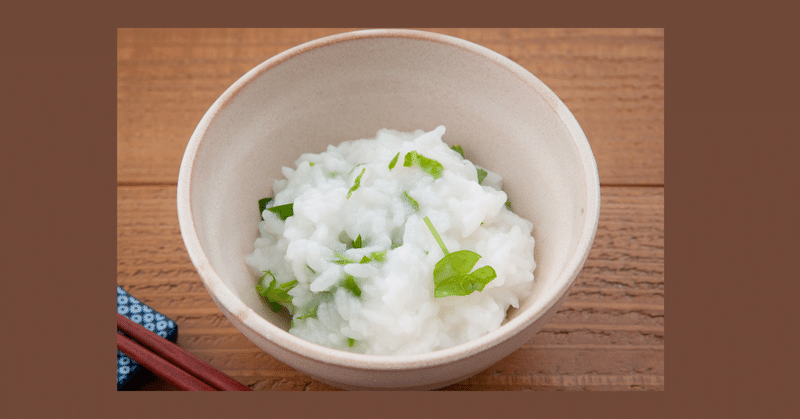
File.12 七草がゆ -The seven herb rice porridge
7日の昨日はお正月飾りを片付けて、七草かゆを食べた。
実のところは4日から仕事はちょっとずつ再開しているのだけれど、まだまだお正月気分が抜けずシャキッとしないところ。
7日に一区切りをする、というのはとても理にかなっている気がする。
今更だけれど七草とは「「セリ・ナズナ・ゴギョウ・ハコベラ・ホトケノザ・スズナ・スズシロ」日本のハーブだ。
お正月で少し贅沢なご飯が続いた後に胃を休めること、早春の芽吹きをいただいて邪気を払うこと。色々な意味が込められている日本人の江戸時代から続くならわしであり、生活の知恵だ。
ものすごいスピードで変わりゆく時代ではあるけれど、生活の基本である「食」は大切にしていくべきだと思う。美味しいものが何でもすぐに食べられる今だからこそ、自分自身で考えていかなければならないこと。
少し苦みもあるので子供たちは七草がゆはあまり好まないのだけど、身体のことを思って食べ物をいただく気持ちを持てるようになってほしいな、と思う。
Yesterday, on the 7th, I put away the New Year decorations and had Nanakusa-gayu (seven herb rice porridge). Truth be told, I've gradually resumed work since the 4th, but the New Year vibe hasn't completely worn off, and I still feel a bit sluggish. It feels quite reasonable to mark a turning point on the 7th.
Belatedly, the "seven herbs" are "seri (water dropwort), nazuna (shepherd's purse), gogyo (cudweed), hakobera (chickweed), hotoke-no-za (henbit), suzuna (turnip), and suzushiro (daikon radish sprouts)"—Japanese herbs. Eating these herbs after indulging in slightly luxurious meals during the New Year is a tradition that dates back to the Edo period, symbolizing giving the stomach a rest and warding off evil with the sprouting of early spring. It's a piece of wisdom in Japanese culture.
Despite the rapidly changing times, I believe we should cherish the basics of life, especially the aspect of "food." In this age where delicious things are readily available, it's crucial to think for ourselves. Nanakusa-gayu might have a slightly bitter taste, and children may not be fond of it, but I hope they develop an appreciation for consuming food with consideration for their health.
この記事が気に入ったらサポートをしてみませんか?
